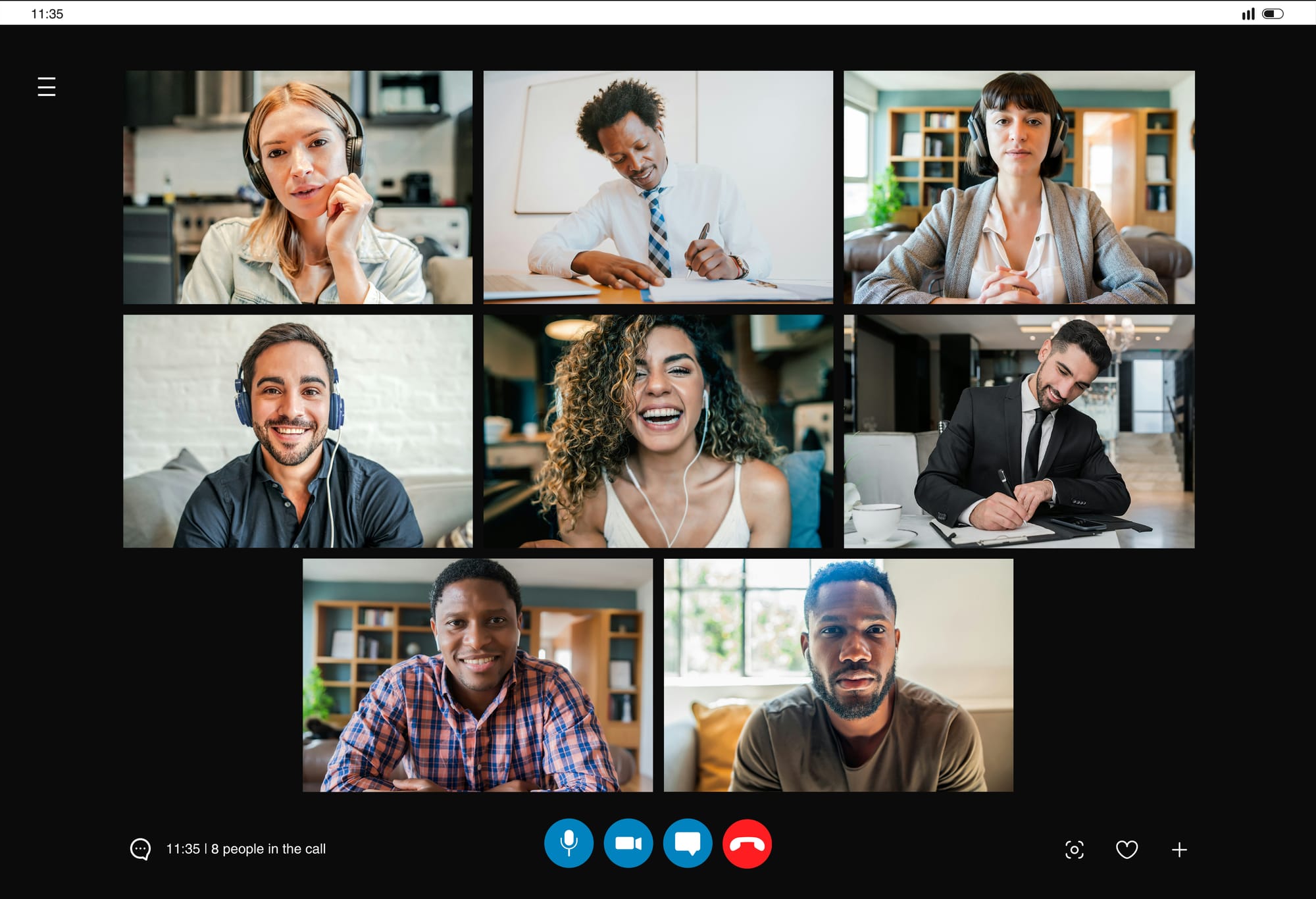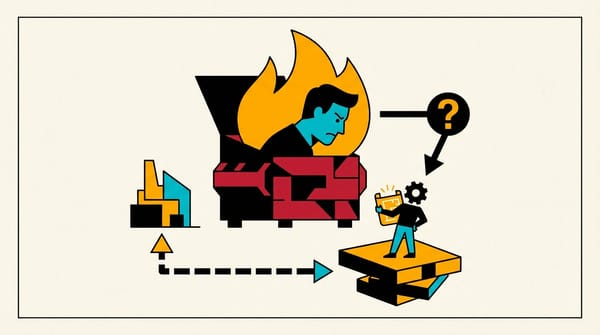Invisible Force: How Context Affects Your Negotiations
Descubre cómo el contexto influye en tus negociaciones y mejora tus habilidades para lograr resultados positivos en cada conversación.

Or you are texting with a friend or lover, and it seems to you that he is writing nasty things to you, and you call him to find out what's going on, but he responds with such love that you realize you invented the tone with which he supposedly wrote you messages.
This is rarely talked about aloud and often deliberately ignored, mistaking this strange feeling for self-doubt, but the small secret lies in the ability to consider the context. This subtle but extremely important element can either strengthen your offer or nullify it. Let's figure out how not to miss this important point and what needs to be done so that every conversation brings the desired result or simply leaves a good impression of you. And so that you also leave with it.
If you have ever surfed the internet, you have probably urgently sought information. You go to a site, don't have time to understand anything, and then a half-screen banner blocks you with a request to subscribe to a newsletter and a 5 percent discount. Another time it might be interesting, but now the timing is wrong.
The timing and needs at that moment are called context. If the seller does not take it into account, the deal is likely to fall through. Context is equally important when you make a presentation for a client, come to an interview, or when your mom calls. Even the opposite: when your mom calls, and you are in a meeting, this is also an example of bad context.
How context works
Context is everything that surrounds our communication, from the time and place of the meeting to the emotional state of the participants. It determines how your information will be perceived and influences whether you achieve the desired result. Imagine a client comes to a meeting with you. Externally, everything looks perfect: you are prepared, you have a clear plan and all the arguments. But what if the client is actually under stress? Maybe he is rushing to the next important call or had difficult negotiations with another partner and now cannot focus on your proposals. This is an example of context that subtly but decisively affects the success of your communication.
Context is important not only in business negotiations. Remember how you text with a friend or loved one. Sometimes you read a message and feel that it hides negativity or sarcasm. However, when you call, you hear that the interlocutor speaks to you with love and care. What happened? Your perception of the text was colored by a certain emotional state—yours or your interlocutor's. This is also context, and it can play a cruel joke on us.
Context is also social norms and expectations that vary depending on the situation. For example, what is acceptable in an informal conversation with a colleague may be completely inappropriate in official negotiations with a client. It is important to be able to recognize what context is present at the moment to correctly adapt your behavior and presentation of information.
Moreover, cultural differences are also part of the context. In one culture, directness and confidence may be perceived as a sign of professionalism, while in another—as rudeness. Misunderstanding these nuances can destroy even the most promising relationships.
Context is not just the background on which events unfold. It is a dynamic force that can either strengthen your arguments or devalue them. Awareness and consideration of context will help you stay ahead, make more informed decisions, and achieve your goals with greater ease.
What can influence the context
Anything can influence the context:
- at what time the meeting takes place—early in the morning, late in the evening, or after lunch when everyone is sleepy; or we had to meet on a day off; or it's a call at 8 AM on December 26;
- who participates in it—are these the people we expected; is there anyone who should not be at the meeting;
- what were the previous relationships—suddenly there was a conflict or war between us before; or we used to love each other, and then quarreled;
- appropriateness and relevance of the situation—are these people ready to talk about it now, aren't there more important matters;
- maybe the participants already have some expectations from us;
- or they have already decided everything, and the meeting is just a formality.
How to remove unfavorable context
To neutralize an unfavorable context, you need to do three things:
- Identify it verbally.
- Link it to the result of the discussion.
- Try to fix it.
Formula:
"Friends, I understand that ***. This may affect our decisions (relationships), so ***. I suggest we do this: ***"
Examples depending on the time of the meeting
Early morning:
Once we had a meeting with an important client right on site, where we were checking the work of interactive screens. I understood that the morning would be hard for everyone: part of the team worked almost all night, and the client had to get up very early to make it on time. Everyone could be sleepy and irritable, so I pre-ordered coffee and croissants. When everyone gathered, I brought out the delivery and said: "We all see each other's state, we are here from the very morning, and some haven't even gone to bed, and it may be difficult for us. So let's raise our blood sugar, fill ourselves with caffeine, and start with the most important questions, and discuss everything else later when everyone feels a little more awake." The client grinned, took a cup of coffee, and greedily attacked the croissant. Everyone did the same. The mood immediately improved. The atmosphere became warmer. As a result, the meeting was productive and on a positive note.

Examples depending on the stage of decision-making
Doubts during the discussion:
Another time I was presenting a project to an internal customer, a producer, and a director. It was noticeable that colleagues came to the meeting with their own opinions. Then I addressed them by name and said: "It seems you have questions or doubts about my proposal. If we can clarify everything now or clarify details, let's do it. But if the decision is already made, let's not waste your time." After this, the director asked to clarify a couple of points. I immediately addressed them, offered our options, and the director and producer chose one of them. They pointed out the key points that worried them. I quickly resolved them, and my team was able to launch the project into work.
Examples related to personal circumstances
Personal matters of participants:
During the quarantine, we held strategic sessions via Zoom, and sometimes it was noticeable that some participants fell out of the conversation, disrupting the rhythm of the meeting. Then I said: "Guys, I understand that many of us are facing difficulties during quarantine, and this may affect our work. If someone feels that now is not the best time to make decisions, let's postpone the discussion until tomorrow. Or we can focus on the most important issues and close them today." We decided to let some participants go and leave some questions for tomorrow, which allowed us not to rush and more qualitatively discuss the remaining topics.

Examples related to physical comfort
Loud noise in the background:
In the summer, they began to dismantle the ventilation under my office windows. The noise was so loud that even with the window closed, the rumble was deafening, making it almost impossible to hold meetings. So I said to everyone: "Because of this noise, it is difficult to concentrate, let's move our discussions to the video editing rooms, where it is quieter, and we can work calmly. I can remotely connect to my computer." Everyone agreed, and we moved to a more suitable place, which allowed us to effectively discuss all important issues.
identify →
make it important →
propose a solution
Conclusion
Context is not just an environment, but a key element that can either strengthen your arguments or completely devalue them. The ability to consider this element and adapt to it is what distinguishes successful negotiators and communicators.
Context is that very small but powerful detail that turns just a conversation into a successful interaction. Consider it, and your negotiations will bring the desired results, and conversations will leave all participants with warm memories.
As always, I invite you to share your opinion in the comments
With love 😽 🤗 😘
K




